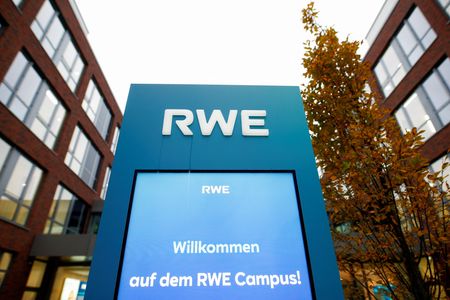By Andrew MacAskill
LONDON (Reuters) -The British government outlined plans on Sunday to end what it called the “failed free market experiment” in mass immigration by restricting skilled worker visas to graduate-level jobs and forcing businesses to increase training for local workers.
Prime Minister Keir Starmer is under pressure to cut net migration after the success of Nigel Farage’s right-wing, anti-immigration Reform UK party in local elections this month.
Under the government’s new plans, skilled visas will only be granted to people in graduate jobs, while visas for lower-skilled roles will only be issued in areas critical to the nation’s industrial strategy, and in return businesses must increase training of British workers.
Companies in the care sector will no longer be able to seek visas for workers recruited abroad.
The Labour government said the changes will be part of a policy document, known as a white paper, to be published on Monday setting out how ministers plan to reduce immigration.
High levels of legal migration were one of the major drivers behind the vote to leave the European Union in 2016 with voters unhappy about the free movement of workers across the bloc.
After Britain eventually left the EU in 2020, the then Conservative government reduced the threshold to allow workers in categories such as yoga teachers, dog walkers and DJs to be eligible for skilled worker visas.
“We inherited a failed immigration system where the previous government replaced free movement with a free market experiment,” Yvette Cooper, the British interior minister, said in a statement. “We are taking decisive action to restore control and order to the immigration system.”
While post-Brexit changes to visas saw a sharp drop in the number of European Union migrants to Britain, new work visa rules and people arriving from Ukraine and Hong Kong under special visa schemes led to a surge in immigration.
Net migration, or the number of people coming to Britain minus the number leaving, rose to a record 906,000 people in the year to June 2023, up from the 184,000 people who arrived in the same period during 2019, when Britain was still in the EU.
Cooper said the combination of the changes to the rules for low-skilled visas and the closure of visas for care workers recruited overseas would probably reduce the number of low-skilled worker visas by up to 50,000 this year.
British employers have expressed concern about the government’s plans to tighten the rules on foreign workers, saying they are needed to fill shortages in the jobs market.
Asked about the government’s latest announcement, a spokesperson for the Confederation of British Industry pointed to comments by CBI Director General Rain Newton-Smith to The Times published on Friday in which she backed the push for more training of British workers.
“But there’s no doubt that at times businesses will face acute skill shortages,” Newton-Smith said. “And of course, they’ll look for domestic routes to fill those, but there will be times when immigration is an important way.”
(Reporting by Andrew MacAskill; additional reporting by William Schomberg; editing by Suban Abdulla, Louise Heavens and Ros Russell)












